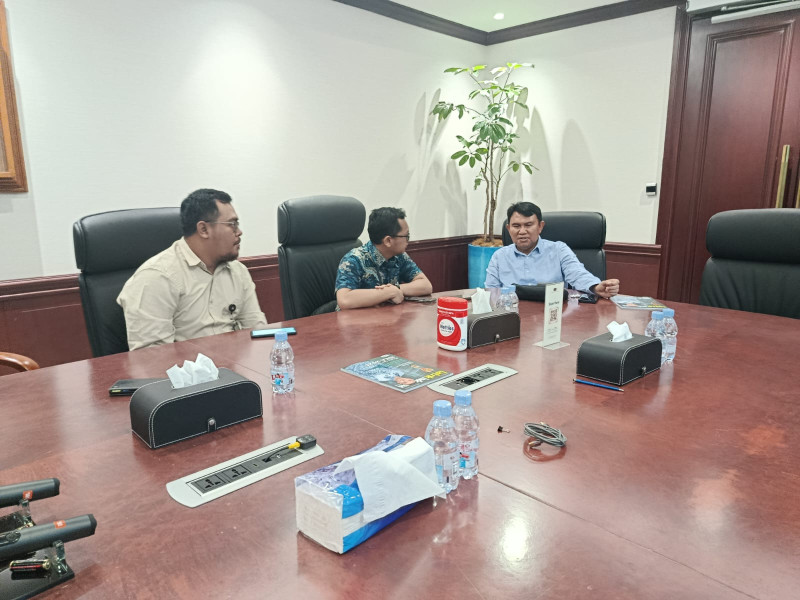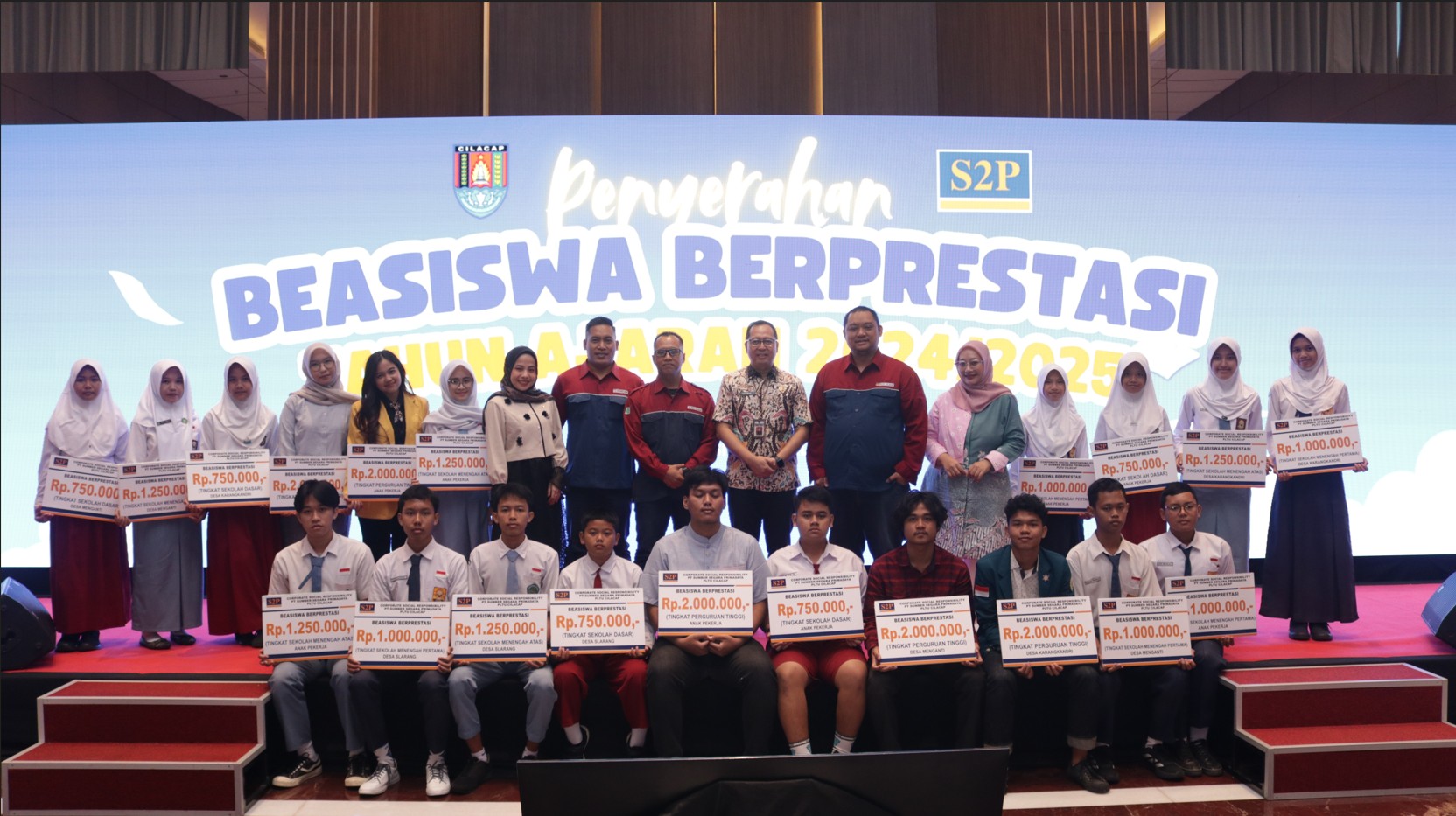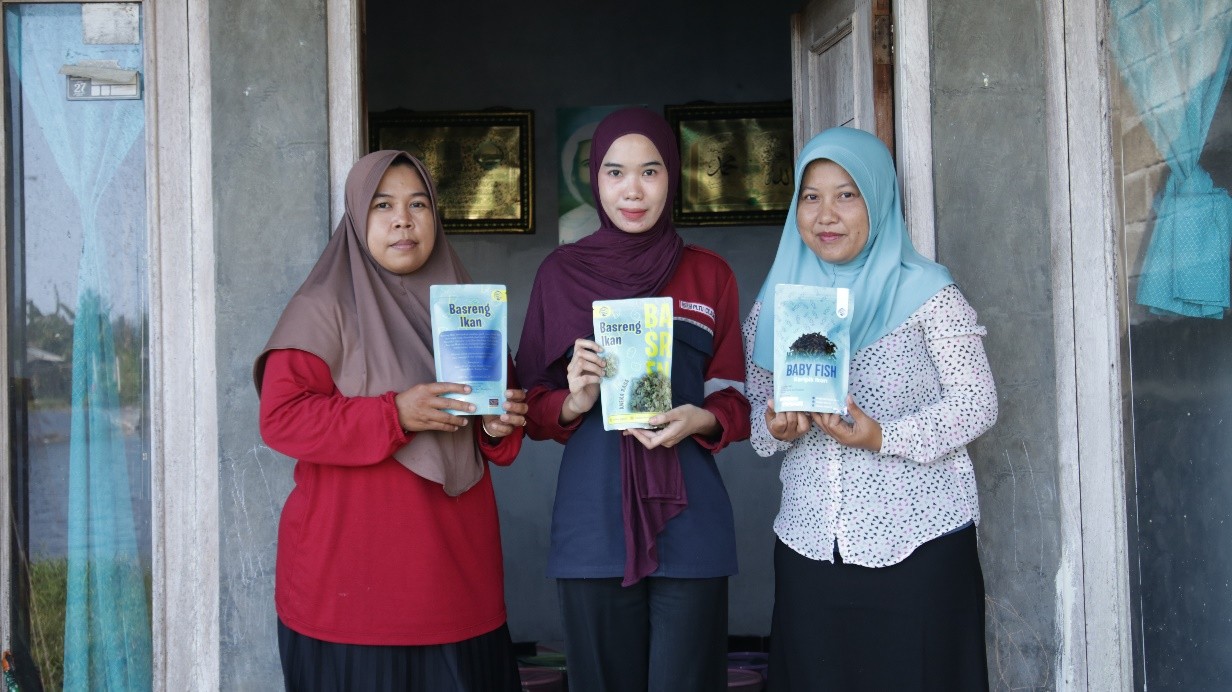Jakarta - As part of its commitment to strengthening the local economy, PT Sumber Segara Primadaya (S2P) – Cilacap Power Plant has initiated a program to empower Micro, Small, and Medium Enterprises (MSMEs) in Menganti Village, Cilacap Regency, to optimize the potential of local marine products and improve the welfare of fishing families. This community empowerment program targets housewives as the primary participants, providing them with business skills and market access to generate sustainable income.
“Community empowerment through skill training and SME development is part of PT S2P’s social responsibility, which we will continue to strengthen. This year, we aim to see the emergence of more independent SMEs ready to compete in global markets,” said Eko Heriyanto, Assistant Manager of CSR at PT Sumber Segara Primadaya (S2P).
This SME empowerment program targets coastal communities in Menganti Village, which have previously lacked access to business training, production equipment, and management skills. The area holds abundant marine resources that have not been optimally utilized. The results of the CSR social mapping conducted by PT S2P indicate high enthusiasm among local residents for entrepreneurship training and innovation in marine product processing.
Since July 2024, this empowerment program has nurtured three MSMEs in Menganti Village, namely Yankizz 56, an MSME that processes fish basreng (with original, sweet and spicy, and spicy flavors), baby fish crispy (petek, bleyik, and bilis fish), and lendra fish skin chips; Palabo 09, which produces fish flakes; and KWT Indah JAYA, which focuses on developing locally grown vegetables. In other areas, PT S2P also supports the Koperasi Usaha Berkah Sejahtera Kewasen (UBSK), an economic institution in Kewasen, Karangkandri Village, which facilitates all its residents in developing businesses for collective well-being. The business sectors it operates in include catering, snacks, garment manufacturing, ecoprinting, and services.
Fish skin chips were born from the idea of utilizing fish skin, which was previously only used as duck feed. Meanwhile, fish basreng is produced due to the abundance of seafood catches and the desire to add economic value. The unique local flavor of savory, crispy, and spicy, combined with modern packaging, makes these snacks a competitive advantage.
The support provided by PT S2P includes: identification of potential raw materials and human resources by the CSR team; training in production, recipe innovation, and entrepreneurship to hone skills in processing marine products; the formation and legalization of business groups, including management and business administration support; the provision of production equipment such as spinners, fryers, and modern packaging, as well as branding training and packaging quality improvement; online promotion and marketing through social media and distribution channels via migrant women workers in Taiwan, Malaysia, and Japan.
The total investment for the program to date amounts to approximately Rp35 million, covering training, intensive mentoring, procurement of production tools, and packaging. Recipe innovations and production processes are developed collaboratively with group members through continuous testing.
In this MSME empowerment program, PT S2P implements a collective work model based on mutual cooperation for operational efficiency and to foster a spirit of togetherness. (Photo : Doc. of S2P)
A total of four active workers, one of whom is a beneficiary of the Program Keluarga Harapan (PKH), are assigned to the marinating, raw material sorting, production, packaging, and marketing processes. The collective work model based on mutual cooperation fosters a sense of community and operational efficiency. To ensure sustainability, PT S2P implements strict Standard Operating Procedures (SOPs) in production, ongoing training, and regular evaluations of products and packaging.
The tangible impact of this program has been felt by UMKM members, such as additional monthly income for those who previously had no employment. The revenue of the Yankizz 56 group has also increased, reaching Rp21.6 million in the second semester of 2024 and rising to Rp22.3 million in the first semester of 2025.
“At first, we were just housewives with no income. But since being mentored by PT S2P, we can process and sell our own products. The results help support our family’s economy,” shared Imah, a member of the Yankizz 56 SME group.
The MSMEs supported by PT S2P produce processed seafood products with distinctive flavors and modern packaging, which give them a competitive edge. (Photo : Doc. of S2P)
This program supports coastal food security by enriching the diversification of processed seafood products and providing healthy food alternatives for local communities. Opportunities for innovation in new products related to the utilization of marine catch are still vast. By adopting a zero-waste approach, nearly all parts of the fish—from meat, bones, to skin—are utilized to be processed into consumable products or other economically valuable products. Thus, the program not only impacts increased income for communities but also contributes to waste reduction and sustainable business practices.
Despite achieving positive results, SMEs in coastal areas still face major challenges such as limited distribution networks, branding, and digital promotion. Currently, promotion and marketing are limited to social media and have not yet expanded to marketplaces. Future development plans include halal certification for processed products, digitalization of marketing and integration into national marketplaces, regional and national market expansion, and advanced product innovation training.
This MSME empowerment initiative in coastal areas is part of PT S2P's commitment to strengthening the role of the energy sector in local community development, especially around the power plant area. Through the synergy between training, mentoring, and product development, the company hopes that the MSMEs under its guidance can inspire other coastal villages to build economic independence based on local potential.



